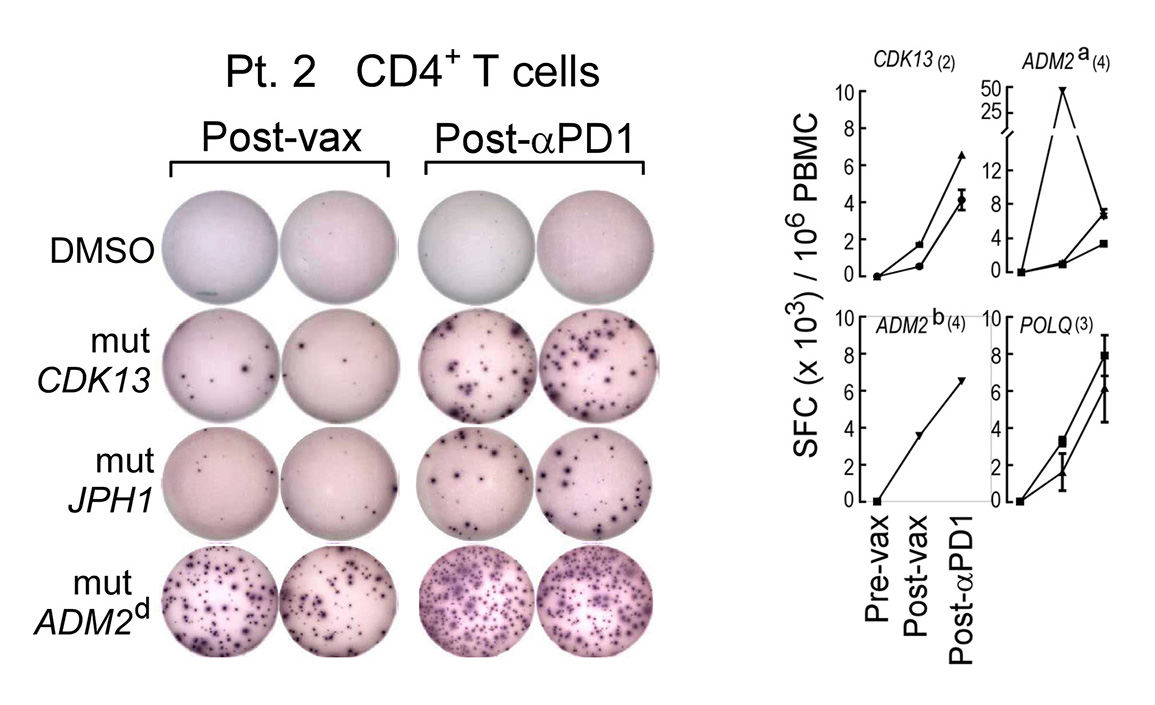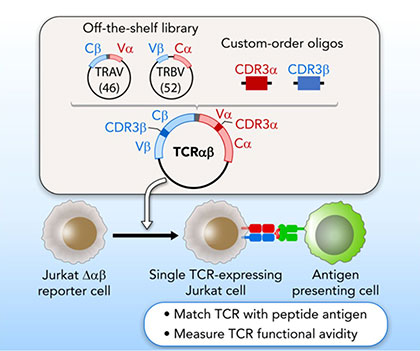
Sensitive detection of HLA-bound peptides on the tumor surface
T cell interactions with MHC presented peptides lie at the heart of any immune response. TIGL has developed and provides:
- Detection of antigens, including CTAs, patient specific neoantigens, ERVs, and non-canonical peptides through optimized experimental workflows, mass spectrometry, and integrated data analysis, using clinical tissues samples
- Serial HLA-peptide isolation methods enabling HLA-I and HLA-II isolation from the same sample
- Mono-allelic systems to characterize the rules that govern HLA peptide processing and presentation
- Proteogenomic approaches to generate patient-specific protein databases for antigen discovery


Immune-monitoring
The strength of TCR binding to cognate antigen (functional avidity) is strongly correlated with in vivo T cell effector function. TIGL has developed and provides:
- ELISPOT assays and multicolor flow cytometry to investigate antigen-specific T cell responses
TCR reconstruction
TIGL has developed and provides:
- A novel TCR reconstruction pipeline that enables the testing of neoantigen-specific TCRs for functional avidity as an indicator of anti-tumor activity using ELISPOT and intracellular cytokine staining
Staff
Derin B. Keskin, PhD, Immunology Lead Scientist
Katarina Pinjusic, PhD, Postdoctoral Fellow
Allison Vanasse, Research Technician
Joseph Duke-Cohan, Research Technician, Bioinformatics
Melis Akinci, Research Technician
Marwa Belhaj, Research Technician

